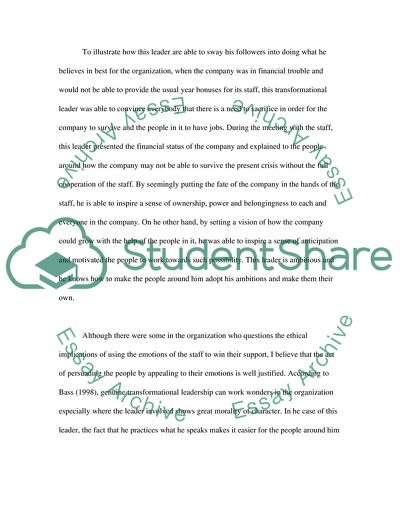Cite this document
(Critical Evaluation of a Leader Practicing Transformational Leadership Term Paper, n.d.)
Critical Evaluation of a Leader Practicing Transformational Leadership Term Paper. https://studentshare.org/human-resources/1706132-developing-leadership
Critical Evaluation of a Leader Practicing Transformational Leadership Term Paper. https://studentshare.org/human-resources/1706132-developing-leadership
(Critical Evaluation of a Leader Practicing Transformational Leadership Term Paper)
Critical Evaluation of a Leader Practicing Transformational Leadership Term Paper. https://studentshare.org/human-resources/1706132-developing-leadership.
Critical Evaluation of a Leader Practicing Transformational Leadership Term Paper. https://studentshare.org/human-resources/1706132-developing-leadership.
“Critical Evaluation of a Leader Practicing Transformational Leadership Term Paper”. https://studentshare.org/human-resources/1706132-developing-leadership.


